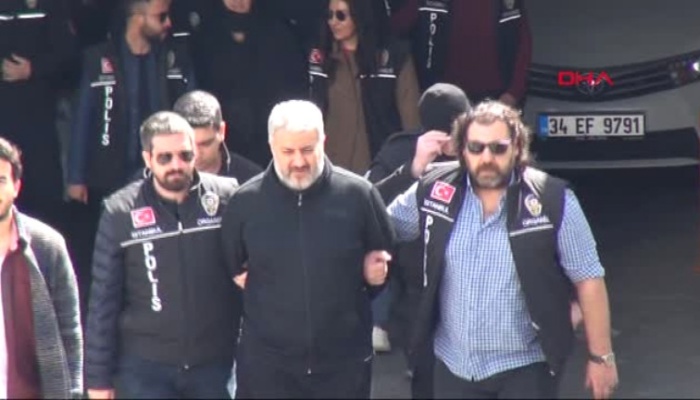Naji Sharifi Zindashti, an Iranian drug kingpin who was arrested and released in Turkey in 2018 in a scandal involving the highest echelons of government, helped in the abduction of Habib Chaab, an Iranian advocate for Arab separatism who was lured to İstanbul from Sweden to be drugged and smuggled into Iran, The Washington Post reported on Sunday.
The report says Turkish intelligence revealed an elaborate plan devised by Iranian intelligence to abduct Chaab, the leader of the Arab Struggle Movement for the Liberation of Ahwaz (ASMLA), a secessionist group advocating for a free Arab state to be established in Iran’s southwestern Khuzestan region.
Chaab, who traveled to İstanbul on Oct. 9 and later turned up in Iran to be tried on multiple terror charges, was lured by a woman named Saberin S., who had been in a “secret marriage” with Chaab, according to his associates cited in the report.
Several members of the kidnap team purchased plastic ties at a hardware store in Istanbul before Chaab landed that evening and went to meet Saberin, who was waiting for him in a van in the Istanbul district of Beylikduzu, the report says.
Chaab, drugged and his hands and feet bound, was driven to the eastern Turkish province of Van and handed over to a human trafficker to be smuggled across the border the next day, a Turkish investigation found. Saberin also returned to Iran.
In November Iranian television had broadcast what it described as the “confessions” of Chaab after his arrest. Human rights organizations condemned what they described as the repetition of forced confessions, which are given under torture by political detainees. Chaab was shown admitting that he and his colleagues worked for foreign intelligence services, incriminating himself over his alleged involvement in a deadly attack on the annual Iranian military parade on September 22, 2018 in the city of Ahwaz.
Turkish law enforcement has detained 11 men, all Turkish citizens, arraigned on charges that include “using weapons … to deprive an individual of their liberty through deceit,” The Washington Post cited the official as saying. Zindashti, the drug smuggler, is still at large and believed to be in Iran.
A relative of Zindashti who was arrested in October shortly after he tried to travel to Iran told Turkish authorities that Zindashti met with Iranian officials several times before Chaab’s disappearance, according to the report.
Zindashti, whose release from prison in 2018 set off a scandal in Turkey, served prison time for a heroin trafficking conviction more than a decade ago, only to be arrested again two years ago, this time on murder charges. Imprisoned in April 2018, he served only six months.
An adviser to Turkish President Recep Tayyip Erdoğan, Burhan Kuzu, who died earlier this year after contracting the coronavirus, allegedly intervened in the case to press for the Iranian drug lord’s release. Kuzu denied the charges despite photos of him and Zindashti dining together circulated in Turkish media.
In 2017, in a drive-by shooting in Istanbul, an Iranian media mogul who had been sentenced to prison in absentia in Iran was killed, and the attack was said to have been carried out by an associate of drug trafficker Zindashti.
Masoud Molavi Vardanjani, a former Iranian defense official who had become critical of his government, was also fatally shot in Istanbul last year, in a killing that Turkish officials said was instigated by intelligence officers working out of the Iranian Consulate there, according to Reuters.
After the killings of the two Iranian dissidents in Istanbul, Zindashti’s possible connection to Iran’s government came to the fore and was discussed in Turkish media.
The latest incident contains echoes of the plot by Saudi Arabia that ended with the slaying of journalist Jamal Khashoggi, whose disappearance in İstanbul two years ago can be viewed as one of a string of foreign intelligence operations staged in Turkey.
Chaab’s disappearance was the third high-profile operation in Turkey blamed on Iran’s government.
Iran has stepped up its foreign operations in recent years, assassinating opponents on European soil and elsewhere, also kidnapping opposition figures abroad, some of whom face capital punishment in the country.

